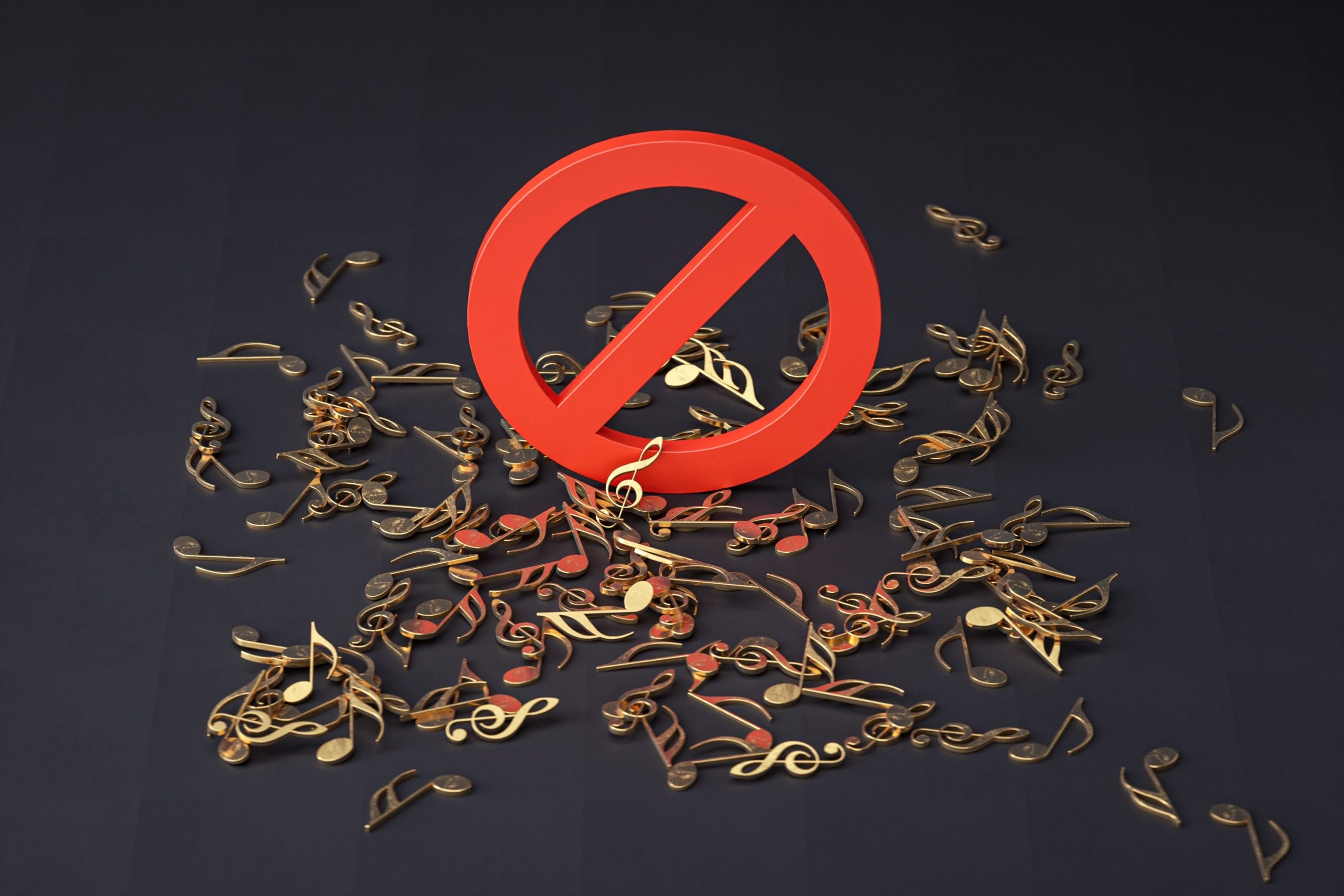Copyright is a hot topic in the music industry right now. With the advent of streaming services like Spotify and Apple Music, it has become more important than ever for musicians to protect their work. In this blog post, we will discuss what copyright is, how it works, and how you can protect your music.
As a songwriter, you have a great deal of control over your work thanks to copyright law. However, it’s important to be aware of the risks of plagiarism and take steps to protect yourself. One way to do this is to register your work with a copyright office or performing rights organization. By taking these simple steps, you can help to ensure that your work is properly protected and that you receive credit for its use.
What is copyright and what does it protect?
Copyright is a form of legal protection that gives creators the exclusive right to control the reproduction and distribution of their work. Copyright law applies to a wide range of creative works, including books, art, music, and films. In order to qualify for copyright protection, a work must be original and fixation in a tangible medium. Once a work is copyrighted, the copyright holder has the exclusive right to make copies of the work, perform or display the work publicly, and create derivative works based on the original. Copyright protection does not cover ideas or facts, only the expression of those ideas or facts in a particular work. As such, copyright can help to ensure that creators are fairly compensated for their work and that their creativity is not unfairly exploited by others.
Why is copyright important for songwriters and other artists?
Copyright is a form of legal protection that gives songwriters and other artists the exclusive right to control how their work is used. Copyright law provides creators with certain exclusive rights, including the right to reproduce, distribute, perform, and display their work. Copyright protection also helps to ensure that creators are compensated for their work when it is used by others. For example, when a songwriter licenses their music to a movie or TV show, they receive a royalty payment for each performance of the song. Copyright law helps to ensure that creators are fairly compensated for their work, which helps to support creativity and artistry. Without copyright protection, songwriters and other artists would be at risk of having their work reproduced and distributed without permission or compensation. Copyright law helps to protect creators’ rights and ensure that they are fairly compensated for their work.
How can you protect your work with copyright registration?
If you’re a creative professional, it’s important to understand how to protect your work with copyright registration. Copyright registration is a legal process that gives you the exclusive right to reproduce, distribute, perform, or display your work. In order to register your work, you’ll need to submit a completed application and fee to the Copyright Office. Once your work is registered, you’ll have the exclusive right to file a lawsuit if someone infringes on your copyright. Additionally, registration creates a public record of your ownership, which can deter would-be infringers and help you prove infringement if it does occur. So if you want to give yourself the best possible protection, registering your work with the Copyright Office is a good place to start.
What are the benefits of copyright registration for songwriters and other artists?
Copyright registration is a critical step for songwriters and other artists who want to protect their work. When a work is registered, it creates a public record that can be used to prove ownership in the event of a dispute. Registration also gives artists the ability to file a lawsuit for infringement, which can lead to significant damages. Additionally, registered works are eligible for statutory damages, which can be substantial even if the actual damages are low. Finally, copyright registration can help to deter would-be infringers, as they will be aware that the work is protected and that the artist is serious about enforcing their rights. For all these reasons, copyright registration should be an important part of any artist’s business strategy.
How can you enforce your copyrights if someone infringes on them?
If someone infringes on your copyrights, you may be able to enforce your rights in a number of ways. One option is to send a cease and desist letter, which requests that the infringing party stop using your copyrighted material and may also include a demand for damages. If the infringing party does not comply with the cease and desist letter, you may be able to file a lawsuit seeking an injunction, which would prohibit the infringing party from continuing to use your material. You may also be able to recover damages, including attorneys’ fees and costs. In some cases, you may be able to recover statutory damages, which are set by law and do not require you to prove actual damages. However, enforcing your copyrights can be a complex and expensive process, so it is important to consult with an experienced copyright attorney before taking any action.
What is the process for registering a copyright with the US Copyright Office?
The process for registering a copyright with the US Copyright Office is relatively straightforward. First, the copyright holder must submit a completed application form, along with a non-refundable filing fee. Next, the copyright holder must provide a copy of the work to be registered. This can be done electronically or by mailing in a physical copy. Finally, the copyright holder must submit a statement of ownership and an affidavit of originality. Once all of these materials have been received, the US Copyright Office will register the copyright and issue a certificate of registration. The entire process usually takes several weeks to complete.
The different types of copyrights and what each covers for songwriters
When a songwriter creates a new song, they automatically receive copyright protection for their work. Copyright law gives songwriters the exclusive right to control how their songs are used and reproduced. This includes the right to make copies of the song, sell or distribute the song, and perform the song in public. There are three different types of copyrights that can apply to a song: mechanical, performance, and synchronization. A mechanical copyright covers the right to reproduce a song on physical formats like CDs or vinyl records. A performance copyright covers the right to perform a song live or on television. And a synchronization copyright covers the right to use a song as part of a visual medium like a movie or video game. All three of these copyrights can be licensed separately, meaning that a songwriter can choose who can use their songs and how they can be used. As a result, copyright law provides songwriters with a great deal of control over their work.
How to protect yourself from plagiarism as a songwriter
As a songwriter, it’s important to be aware of the risks of plagiarism. While it’s always important to give credit where credit is due, there are a few extra precautions you can take to protect yourself. First, keep track of all your ideas. Whether you jot them down in a notebook or type them into a document on your computer, having a record of your original thoughts will help to prove that you aren’t plagiarizing someone else’s work. Second, be sure to cite any sources that you use for inspiration. If you’re drawing from another song or poem, for example, be sure to include the author’s name in your own work. Finally, consider registering your work with a copyright office. This will provide additional protection in the event that someone tries to pass off your work as their own. By taking these simple steps, you can help to safeguard your ideas and ensure that you receive the credit you deserve.
The benefits of registering with a Performing Rights Organization
Any musician who wants to make a living from their work should consider registering with a Performing Rights Organization (PRO). A PRO represents the interests of its members by licensing their music to be performed in public and collecting royalties on their behalf. In return, members receive regular payments based on the number of performances of their songs. Registering with a PRO is simple and straightforward, and there are numerous benefits to doing so. First and foremost, it provides a steady source of income. Performers who are not registered with a PRO can still receive royalties for public performances of their work, but they will need to track down the venue themselves and negotiate payment terms. In addition, being registered with a PRO gives musicians greater visibility and credibility. Venues are more likely to book performers who are affiliated with a well-established organization, and fans are more likely to take an interest in an artist who is officially represented. Overall, registering with a PRO is a smart move for any musician who wants to professionalize their career.
Resources for songwriters looking to protect their work
As a songwriter, it is important to be aware of the many ways that your work can be stolen or used without permission. There are a number of resources available to help you protect your work and ensure that you are compensated for its use. The first step is to register your work with the United States Copyright Office. This will give you legal evidence of your ownership in case you need to take action against someone who has used your song without permission. You can also join a performing rights organization like ASCAP or BMI, which will track when your song is played and make sure you receive royalties. In addition, you can add a copyright notice to your songs to remind others that they are protected by copyright law. By taking these steps, you can help to ensure that your work is properly protected and that you are compensated for its use.








